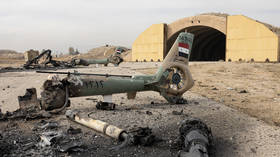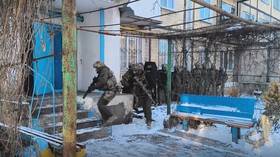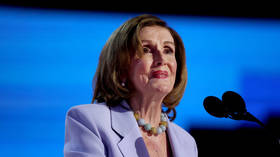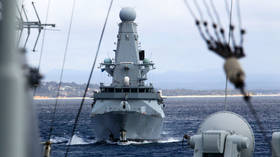Medvedev brushes aside Russia’s critics ahead of G8
President Dmitry Medvedev has mapped out his vision of Russia’s role in the world in a question-and-answer session with foreign journalists ahead of next week’s G8 summit. In a wide ranging interview, Medvedev discussed
This year's G8 in Japan will be the first ever for Medvedev. And although the new leader is no longer a dark horse for the media, journalists seemed to have a lot to ask him.
The full version of the interview with the Western press: Part 1 and Part 2.
The interview with Japanese media
Medvedev's take on American Presidential candidate John McCain's appeal to expel Russia from the G8 was, naturally, a point of interest.
He said that the G8 brings together the biggest and strongest players in world politics, and that the list wouldn't change just because of one person’s individual wishes. He described the possibility of Russian expulsion as “simply not serious”.
Russia’s ties with its closest neighbours were also a focus of the meeting. Journalists wanted to know whether Medvedev thought that Russia should support and develop democracy in former CIS countries.
The president believed Russia had good, friendly relationships with all of them.
He said: “And that’s a good thing, because after the Soviet Union ended, we did not create anything that would unify everyone, with the exception of the Baltic States. And the CIS should be treasured.”
He added: “Democracy cannot be something that is advocated for from the outside. We see that time and time again. The experience of building effective democracies in Afghanistan and Iraq shows us that money is not enough to instill democratic values.”
When asked his opinion on whether Belarus or Uzbekistan could be considered democratic countries, Medvedev said: “And which can be considered democratic in your opinion? Aside from these? Are others democratic?”
On democracy in Russia itself, the President commented that it was still developing, and needed to continue growing on the basis of the constitution. He also stressed that Russia should remain a presidential republic for decades or even centuries to come.
Questioned next about the jailing of former Yukos CEO Mikhail Khodorkovsky, Medvedev said that criminal cases are examined in accordance with the law of the country in question, and any outside interference is inadmissible.
Russia's priorities for the future, the president continued, would remain the same as those set eight years ago, at the beginning of Putin's term.
The country’s relations with the United Kingdom, which are currently going through a bad patch, came up in the interview as well.
“Business ties are strong, despite the political chill,” he said. The two countries have seen worse, he added, so it should be a matter of time before relations get better.
Commenting on Kosovo, Medvedev said Russia’s position remains the same: only the UN can have a legal mandate in the area. And only the Security Council can replace the peacekeeping forces there.
Touching on nuclear security, Medvedev dwelt on positive steps in negotiations with North Korea. He said the same methods should be used in negotiating with Iran. The EU's recent actions, he claimed, seemed geared "to pinch Iran rather than talk to it’’.
The new Russian leader has been dubbed by many in the western media as liberal. President Medvedev was asked if it's true.
“Taking into account that I’m quite a young president, I would refrain from classifying myself anyway. What I can confirm, however, is that I do possess all the basic values which I fostered from university and which I think of as fundamental,” Medvedev said.
According to the President, there should always be the priority of law passed by the parliament against by-laws and acts.
“We should fight against legal neglect and lawful nihilism. The economy should be based on market values, and property rights should always be protected,” he said.
The balance of power between President Medvedev and Prime Minister Vladimir Putin – the country's previous leader – has given rise to much media speculation. Medvedev clarified the situation.
He said: “There are people you can turn to for advice, and Vladimir Putin is one of them. He has a lot of experience, and he’s a very popular politician. But in the end, it’s up to you to make the decision. And, if this decision is wrong, you will be responsible. And this changes the whole thing, changes the idea of how to work.”
The president's meeting with the media lasted over two hours.












